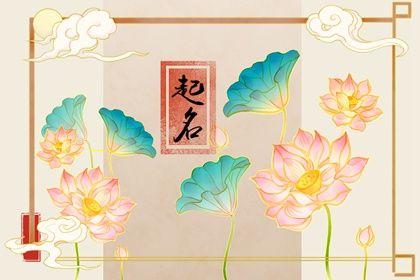三声起名时究竟选择哪些字比较好呢
- 作者: 王奕琛
- 来源: 投稿
- 2024-07-26
一、三声起名时究竟选择哪些字比较好呢
三声字起名时推荐选择以下类型的字:
1. 阳刚大气之字:浩、宏、伟、杰、刚、毅、勇、志、强、胜
2. 温柔婉约之字:柔、美、雅、静、慧、娴、淑、婉、丽、妍
3. 吉祥如意之字:福、禄、寿、喜、财、安、康、宁、祥、瑞
4. 品德高尚之字:仁、义、礼、智、信、忠、孝、悌、廉、耻
5. 才华横溢之字:文、艺、书、画、琴、棋、诗、词、曲、赋
6. 寓意美好之字:春、夏、秋、冬、花、草、树、木、山、水
7. 稀少独特之字:珒、玓、璺、璻、璾、璿、瓀、瓁、瓂、瓃
8. 避免使用以下类型的字:
生僻难认之字寓意不佳之字
谐音不雅之字
笔画过多之字
9. 注意字义搭配:
选择字义相近或相辅相成的字,避免字义冲突或矛盾。
10. 考虑整体音律:
三声字起名时,要注意整体音律的和谐,避免过于单调或拗口。
二、三声起名时究竟选择哪些字比较好呢怎么读
三声起名时适宜选择的字
阳平调(第三声)1. 寓意吉祥的字
福(fú)
禄(lù)
寿(shòu)
康(kāng)
宁(níng)
2. 表达美好品质的字
贤(xián)慧(huì)
敏(mǐn)
勤(qín)
勇(yǒng)
3. 具有自然意象的字
山(shān)水(shuǐ)
云(yún)
风(fēng)
雨(yǔ)
4. 表达情感的字
爱(ài)
情(qíng)
思(sī)
念(niàn)
愿(yuàn)
5. 其他适宜的字
辰(chén)
轩(xuān)
杰(jié)
伟(wěi)
俊(jùn)
三声字的读音
阳平调(第三声)的读音特点是:
起音较高,平稳上升。
音调平直,不下降。收音略微上扬。
例如:
福(fú)
禄(lù)
寿(shòu)
康(kāng)
宁(níng)

三、三声起名时究竟选择哪些字比较好呢英语
When choosing characters for a three-character name, it is best to select characters that:
Have a positive meaning. This will give your child a name that is associated with good qualities and traits.
Are easy to pronounce. You want your child to be able to say their name easily and without hesitation.
Are not too common. You want your child to have a unique name that stands out from the crowd.
Flow well together. The characters in your child's name should sound good together and create a harmonious name.
Here are some examples of three-character names that meet these criteria:
Amelia (meaning "industrious")
Benjamin (meaning "son of the right hand")
Charlotte (meaning "free man")
Daniel (meaning "God is my judge")
Elizabeth (meaning "my God is abundance")
Henry (meaning "ruler of the home")
Isabella (meaning "devoted to God")
James (meaning "supplanter")
Katherine (meaning "pure")
Michael (meaning "who is like God?")
Olivia (meaning "olive tree")
Samuel (meaning "heard by God")
Thomas (meaning "twin")
Victoria (meaning "victory")
William (meaning "resolute protector")
四、姓是三声三字名怎样取音调
姓氏为三声,三字名取音调建议:
第一字:一声或四声,与姓氏形成平仄对比,如:张(三声)明(一声)远(四声)
第二字:二声或三声,与姓氏和第一字形成抑扬顿挫,如:张(三声)明(二声)远(四声)
第三字:一声或四声,与第二字形成平仄对比,如:张(三声)明(二声)远(一声)
示例:张(三声)明(二声)远(一声)
张(三声)明(三声)辉(一声)
张(三声)明(二声)轩(四声)
张(三声)明(三声)杰(一声)
张(三声)明(二声)瑞(四声)



